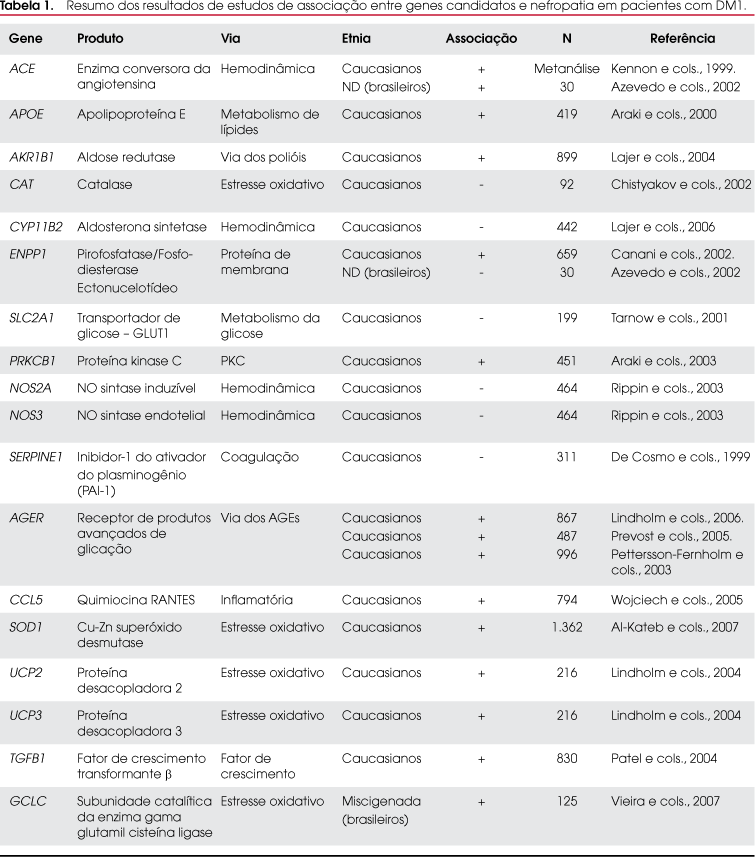Glycemic control and diabetes duration are believed to be the most important risk factors for the development of diabetic microangiopathy; however, the rate of progression of nephropathy, retinopathy and polyneuropathy varies considerably among patients. Besides the presence of risk factors such as hypertension, dyslipidaemia and smoking, there is evidence suggesting that genetic predisposition plays a role in the susceptibility to microvascular complications. Based on underlying pathogenesis, polymorphisms of several candidate genes belonging to multiple pathways have been investigated, like the genes related to mechanisms of hyperglycaemia-induced damage (such as advanced glycation end-products and reactive oxygen species increased formation, augmented activity of the aldose reductase pathway); genes related to the renin-angiotensin system; genes coding for cytokines, growth factors and its receptors, glucose transporter; among many others. This article reviews some studies that corroborate the importance of the genetic background in the development of diabetic microangiopathy.
Type 1 diabetes; Microvascular complications; Hyperglycemia; Genetic; Predisposition





